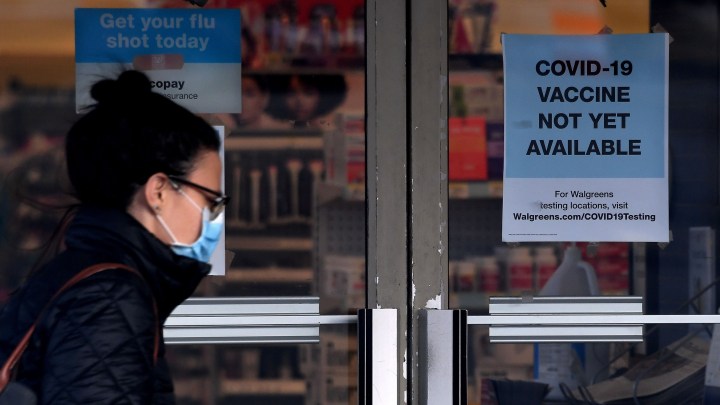
How workplaces could help distribute the vaccine

It’s going to take a lot of coordination to get the COVID-19 vaccine to everyone. Doctors’ offices and pharmacies are obvious sites for distribution. Some experts are hoping workplaces will be added to the list.
Employer-sponsored vaccine programs could work like the flu-shot days many companies host every fall, when the boss brings the vaccine to you. These programs are effective because they increase convenience.
“It turns out that we’re really bad at following through on our intentions,” said Katy Milkman, who researches economics and health behavior at the Wharton School at the University of Pennsylvania. “And that’s going to be, I think, one of the biggest challenges related to this vaccine.”
Vaccines at work would also help establish trust.
“Often they give stickers that say, ‘Hey, I got vaccinated,’ ” said Dan Salmon, who directs the Institute for Vaccine Safety at Johns Hopkins University’s Bloomberg School of Public Health. “So that’s helping to create social norms, and social norms are really very important.”
The COVID-19 vaccine could be given at places like offices, malls and universities. But that would come with challenges. For instance, the Pfizer vaccine has to be stored at 94 below zero Fahrenheit — a bit colder than the break-room freezer.
“Plus it’s two doses, so they’d have to come back for the second dose. So it really would take a lot of planning,” said Claire Hannan, executive director of the Association of Immunization Managers.
Hannan said by the time we reach mass distribution, there may be versions of the vaccine that are easier to store and administer. “So hopefully, there will be better options than trying to lug an ultracold freezer into the workplace.”
Hannan thinks that if employer-sponsored vaccinations do happen, they’ll become so popular that the biggest hurdle won’t be these logistics, but finding enough health care professionals to keep up with demand.
There’s a lot happening in the world. Through it all, Marketplace is here for you.
You rely on Marketplace to break down the world’s events and tell you how it affects you in a fact-based, approachable way. We rely on your financial support to keep making that possible.
Your donation today powers the independent journalism that you rely on. For just $5/month, you can help sustain Marketplace so we can keep reporting on the things that matter to you.


















